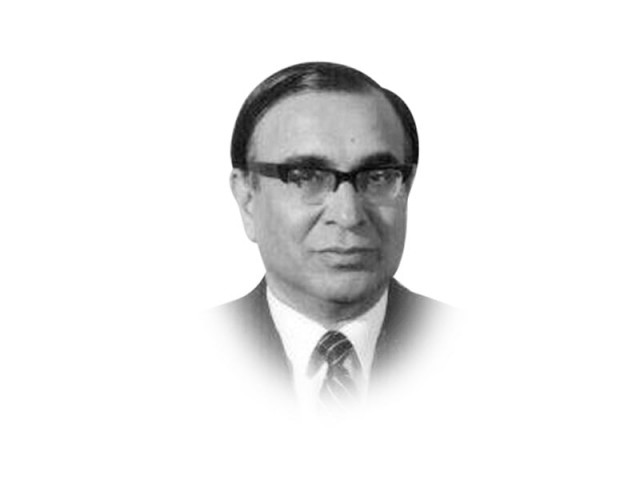Afghanistan: quest for peace
Washington creates an enormous fog of public diplomacy to keep everybody guessing its real intentions.

First the question of the Taliban’s willingness to engage in a constructive dialogue. In Jinnah House round tables there was divergence of opinion on this issue. At one end of the spectrum was the view that the Taliban have endured a decade of military campaigns and would, therefore, come to the conference table only if assured of their core objectives. Mullah Omar’s Eid message has been described by Ahmed Rashid as “by far the most forward-looking political message he has ever sent”. Mullah Omar confirms initial contacts with the Americans and thus conditions his followers to the possibility of future negotiations albeit to achieve the objectives of his Islamic Emirates of Afghanistan, “an efficient political and military entity”. He considers an independent Islamic regime as a conducive mechanism for the “sustainability of religious and worldly interests of the country and the countrymen”, for which every legitimate option can be considered. While Omar concedes participation of all ethnic groups in future governance, he reiterates opposition to long-term US bases and rejects a limited withdrawal. Peacemakers will have to finesse this complex statement to keep the Taliban on board. How far Pakistan can play a part in converting the ‘positives’ in Mullah Omar’s statement into a basis for a result-oriented process depends to a considerable extent on narrowing divergences in perceptions and objectives between Pakistan and the United States, a major theme of the Jinnah House report. It has an edge over our individual commentaries as it is reflects the collective experience and memory of the participants in the project who remained deeply engaged with Afghanistan, including service in that country. A perceptive analysis of this report by Ejaz Haider (“Filling the policy vacuum on Pakistan, America and the Afghanistan endgame”, The Express Tribune, August 29) saves me from writing parts two, three et al of this piece. The divergence between Washington and Islamabad is rooted in the long-term strategic ambitions and aspirations of the two capitals. It can be narrowed enough to develop a momentum for peace provided Washington revisits its overt and covert agenda in and for Pakistan. Meanwhile, gratuitous homilies to the Pakistan Army and the ISI to give up their old evil designs are irrelevant as Pakistan’s expectations have undergone a fundamental change.
Washington creates an enormous fog of public diplomacy to keep everybody guessing its real intentions. Afghan sources claim understandably that the huge army that Washington would raise and sustain would eventually need both armoured formations and a small but effective air force. For the latter, which has to start from scratch, the first step has been taken with the contract that would bring six Cessna 182T aircraft, 26 208B aircraft, and six aircrew training devices. The planes will be used for training and light tasks. In Iraq, Cessna aircraft have been enabled to carry out short surveillance and fighting missions. In Afghanistan, the same may happen as the training of pilots etc may be the first building block in reviving the completely destroyed Soviet-built Afghan air force. Obviously, the Afghan army will feel the urgency for an effective air cover and armoured support only when the Americans cannot provide it. But it is a pointer to what the Marxists used to call the intended correlation of forces in the region. Cooperation between Washington and Islamabad would become easier if there is transparency of intentions.
Published in The Express Tribune, September 5th, 2011.



















COMMENTS
Comments are moderated and generally will be posted if they are on-topic and not abusive.
For more information, please see our Comments FAQ